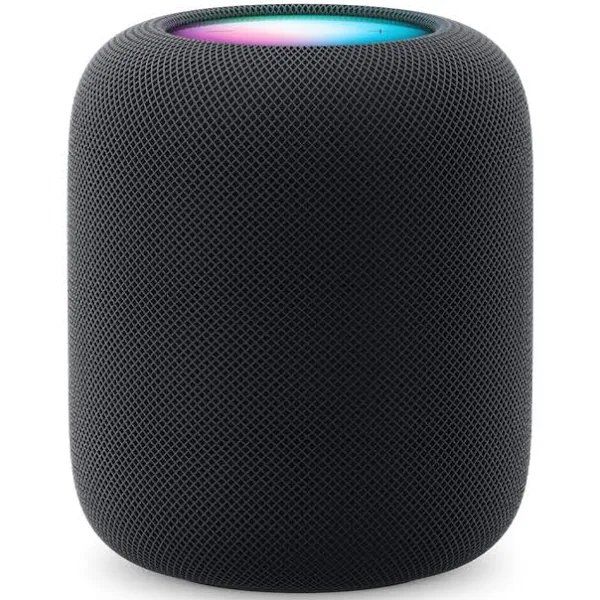Who is behind the smart home standard Matter?
Matter is becoming a really big deal. So who are the major players behind the new smart-home protocol?

Please note: This page may contain affiliate links. Read our ethics policy
Matter is a new smart home standard currently being developed by the Connectivity Standards Alliance (CSA), formerly the Zigbee Alliance. The CSA is a global consortium of over 350 companies working to develop and promote open standards for smart home devices and systems.

The CSA was founded in 2002 by a group of companies that were developing early smart home products. The goal of the CSA was to create a standard that would allow all of these different products to work together seamlessly without the need for different hardware and software for each device.
CHIP
In 2019, the CSA announced the formation of the Project Connected Home over IP (CHIP) working group. The goal of CHIP was to develop a new smart home standard that would be based on Internet Protocol (IP).
The CHIP working group was founded by Amazon, Apple, Google, and the Zigbee Alliance. Other major companies that joined the working group include IKEA, Samsung, and Huawei.
In 2021, the CHIP working group renamed itself the Connectivity Standards Alliance and announced that the new smart home standard would be called Matter.
The Matter standard is still under active development, and its purpose is to make it possible for consumers to buy smart home devices from different manufacturers and know that they will work together seamlessly. This is a huge win for consumers.
Who are the key players behind Matter?
The key players behind Matter are companies committed to making Matter a success, and they are working together to develop and promote the new smart home standard.
Here are some of the key players behind Matter:
Amazon
Amazon is a major player in the smart home market, with products such as the Echo smart speaker and the Amazon Ring security system. Amazon is also a leading cloud computing provider, and it is expected to play a major role in the development of Matter-based cloud services.
With its massive clout as an e-commerce platform, it is also ideally placed to push out huge amounts of Matter devices.
Apple

Apple is another major player in the smart home market, with products such as the HomePod smart speaker and the HomeKit smart home platform. Apple is also a leader in security and privacy, and it is expected to play a major role in ensuring that Matter is a secure and private standard.
With its enormous number of users, having Apple on board, integrating their HomeKit platform into Matter, Matter will open itself up to millions of smart home users worldwide.
Google is the third major player in smart home products, with devices such as the Nest smart thermostat and the Google Home smart speaker. Google is also a leader in artificial intelligence and machine learning, and it is expected to play a major role in developing Matter-based features such as proactive automation and personalized recommendations.
Their Android phone operating system will also provide a solid foundation for bringing in the many millions of Android phone owners into the Matter ecosystem.
IKEA

IKEA is a major player in the home furnishings market, and it is expanding its product portfolio to include smart home products called TRADFRI. IKEA is committed to making smart home technology affordable and accessible to everyone, and it is expected to play a major role in driving the adoption of Matter.
With IKEA stores in abundance around the globe, they too are uniquely positioned to sell countless TRADFRI devices.
Samsung
Samsung is a major player in the consumer electronics market, and it offers a wide range of smart home products under the SmartThings banner, such as:
- SmartThings Light Bulbs: These are LED light bulbs that can be controlled by voice or through the SmartThings app.
- SmartThings Motion Sensor: This sensor can detect movement and can be used to trigger automations, such as turning on lights when you enter a room.
- SmartThings Doorbell: This doorbell can be used to see who is at your door, even when you're not home, and can be used to trigger automations, such as turning on lights when someone rings the doorbell.
- SmartThings Camera: This camera can be used to monitor your home when you're not there, and can be used to trigger automations, such as turning on lights when someone enters your home.
Why is Matter Important?
Matter is important because it will make it easier for consumers to build a smart home. With Matter, consumers will no longer have to worry about whether or not two smart home devices are compatible with each other. They can put together the ideal smart home for themselves, regardless of manufacturer.
Matter will also make it easier for developers to create smart home products. With Matter, developers will only need to write their code once, and their products will be compatible with all Matter-certified devices.
What does the future hold for Matter?
Matter is still in its early stages of development, but it has the potential to revolutionize the smart home industry. With Matter, consumers will be able to build truly seamless and interoperable smart homes.
Matter is also expected to boost the adoption of smart home technology. With Matter, it will be easier and more affordable for consumers to get started with smart home devices. For those who are nervous about installing their first smart home gadget, the barrier to entry will be greatly lowered.
Matter is also expected to reduce the cost of smart home products for consumers. This is because Matter will make it easier for manufacturers to produce smart home devices that are compatible with a wide range of platforms and standards.
Overall, the future of Matter looks very promising. Matter has the potential to make smart homes more accessible, affordable, and secure for everyone.